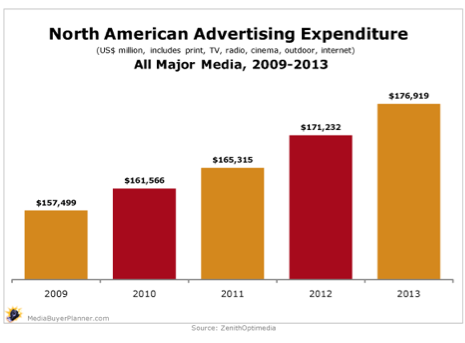American Consumer
 Back in the states I’m always amazed at how often I find myself at the store. I feel there is always something I “need” which, of course, isn’t true. The American life is set up to create the perfect consumer. Sometimes, I think we’re the robots they created just to keep the machine of our economy alive.
Back in the states I’m always amazed at how often I find myself at the store. I feel there is always something I “need” which, of course, isn’t true. The American life is set up to create the perfect consumer. Sometimes, I think we’re the robots they created just to keep the machine of our economy alive.
We get out of high school and go to college. Bam! Now we’re in debt and have to have a job to pay off the debt we accrued. There isn’t another way. It’s ironic because people blame the Universities for being liberally skewed but there for-profit institutions are what trap many Americans into the most conservative lifestyle.
If you didn’t go to college, you’re kicked out of the home around 18 and encouraged to have the all-American work ethic. Time to get a job, bum! Use that required education you were forced to receive to flip burgers or stock shelves. What about travel? What about just wandering around thinking? When will you have the time to define who you are?
Here’s how: you watch TV, see fashionable, fit people with great jobs, great hair and Nikes. Now you need a pair of Nikes to prove you’re on track. To prove you have a job, are worth something to society. Society invested in you and now makes you feel guilty if you diverge from your predestined path. You have to SHOW you belong in this society or you’ll be scoffed. Don’t want to shave your legs young woman?- hippie! Don’t want to comb your hair young man?- pothead! Don’t want to get a job?- bum! The list goes on. And it’s all based around consuming things.
 Capitalism is an economic idea and doesn’t have to be tied to the idea of democracy. You can bash one and have the other. In fact, we could agree as a democracy to do so, but so many Americans have the idea that capitalism is our way of life, not the democratic part. When we say we are spreading democracy, is that all we want to spread or are we opening new markets for our products? When a building making clothes for us collapses and kills 500 people do we feel guilty for demanding such cheap prices for things that we force laborers we don’t want to look at to be stacked several stories high. Good thing they are out of sight, too, because they don’t wear the right stuff or behave the right way to fit into our paradigm. That’s oversimplified, of course, but it is worth thinking about how much our ideology of consumerism is impacting not just us, but everyone around us.
Capitalism is an economic idea and doesn’t have to be tied to the idea of democracy. You can bash one and have the other. In fact, we could agree as a democracy to do so, but so many Americans have the idea that capitalism is our way of life, not the democratic part. When we say we are spreading democracy, is that all we want to spread or are we opening new markets for our products? When a building making clothes for us collapses and kills 500 people do we feel guilty for demanding such cheap prices for things that we force laborers we don’t want to look at to be stacked several stories high. Good thing they are out of sight, too, because they don’t wear the right stuff or behave the right way to fit into our paradigm. That’s oversimplified, of course, but it is worth thinking about how much our ideology of consumerism is impacting not just us, but everyone around us.
Homes in many other countries are not decorated. They don’t have shelves or storage because they don’t (or can’t) stockpile. We have cabinets full of stuff we don’t use on a daily basis. Begging the question of why we bought it in the first place. Other homes just have a table (where you eat) and some floor space (where you sleep). You don’t need much to be happy and content. A roof, some source of heat, family, food. My neighbors spend a fortune on chemicals to make their grass greener. That’s money they worked hard for, time they spent away from their families. They buy yard art to impress their neighbors, “See! I’m productive and relevant to society!”
 We even rate our economy by consumer confidence. How confident are we as a people? Let’s express it by purchasing things we don’t need. That shows we’re on track to a bright future. Ha!
We even rate our economy by consumer confidence. How confident are we as a people? Let’s express it by purchasing things we don’t need. That shows we’re on track to a bright future. Ha!
We’re not immune at all. We live in a suburb at the moment that is quite stunning. We have nice furniture, art on the walls, cabinets full of things and drawers full of more things. Things are all around us. We’re very American in this sense. But, with all these American capitalist-consumer things, we’re detached from the people around us because we’re so surrounded in things and work. I’d like to see more of the democracy part of our ideology and less of the commercials, radio ads, billboards, newspaper ads, coupons and other reminders of consumerism. What if there were that many reminders of our national ideology? Wouldn’t that be neat (or perhaps, too much?).


